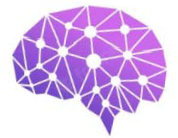
qEEG screening
Service code s9019
Short description
PTSD is the term for a severe and ongoing emotional reaction to an extreme psychological trauma that a person may experience for weeks, months, or even years after the traumatic event.
Scientific research demonstrated that Early Life Stress has been associated with a range of adverse outcomes in adults, including lasting impact on electrical brain activity (EEG). Neuropsychological research has provided evidence that changes in catecholamine levels following a traumatic event can impede brain region development, which in turn can compromise later cognitive functioning and emotional regulation and leave a person susceptible to stress.
qEEG screening may help to assess objectively whether your current symptoms are the long-term consequences of early life stress.
Results
By performing this qEEG screening you will get the information on:
- whether you have a qEEG pattern typical for PTSD (or early life stress) and
- the potential extent of its severity.
Notes:
- The results of qEEG analysis are put in context of published scientific studies, the individual’s health history, complaints, symptoms and psychometric and other evaluations (if available).
- Present psychotropic medication use may affect the results.
To place a service order, use the following email:
References
- Hanson JL, Williams AV, Bangasser DA, Peña CJ. Impact of Early Life Stress on Reward Circuit Function and Regulation. Front Psychiatry 2021; 12: 744690.
- Herzberg MP, Gunnar MR. Early life stress and brain function: Activity and connectivity associated with processing emotion and reward. NeuroImage 2020; 209: 116493.
- Laxminarayan S, Wang C, Oyama T, Cashmere JD, Germain A, Reifman J. Identification of veterans with PTSD based on EEG features collected during sleep. Front. Psychiatry 2020; 11: 532623.
- McFarlane A, Clark CR, Bryant RA, Williams LM, Niaura R, Paul RH, Hitsman BL, Stroud L, Alexander DM, Gordon E. The impact of early life stress on psychophysiological, personality and behavioral measures in 740 non-clinical subjects. J Integr Neurosci 2005; 4: 27-40.
- Smith KE, Pollak SD. Early life stress and development: potential mechanisms for adverse outcomes. Journal of Neurodevelopmental Disorders 2020; 12:34.